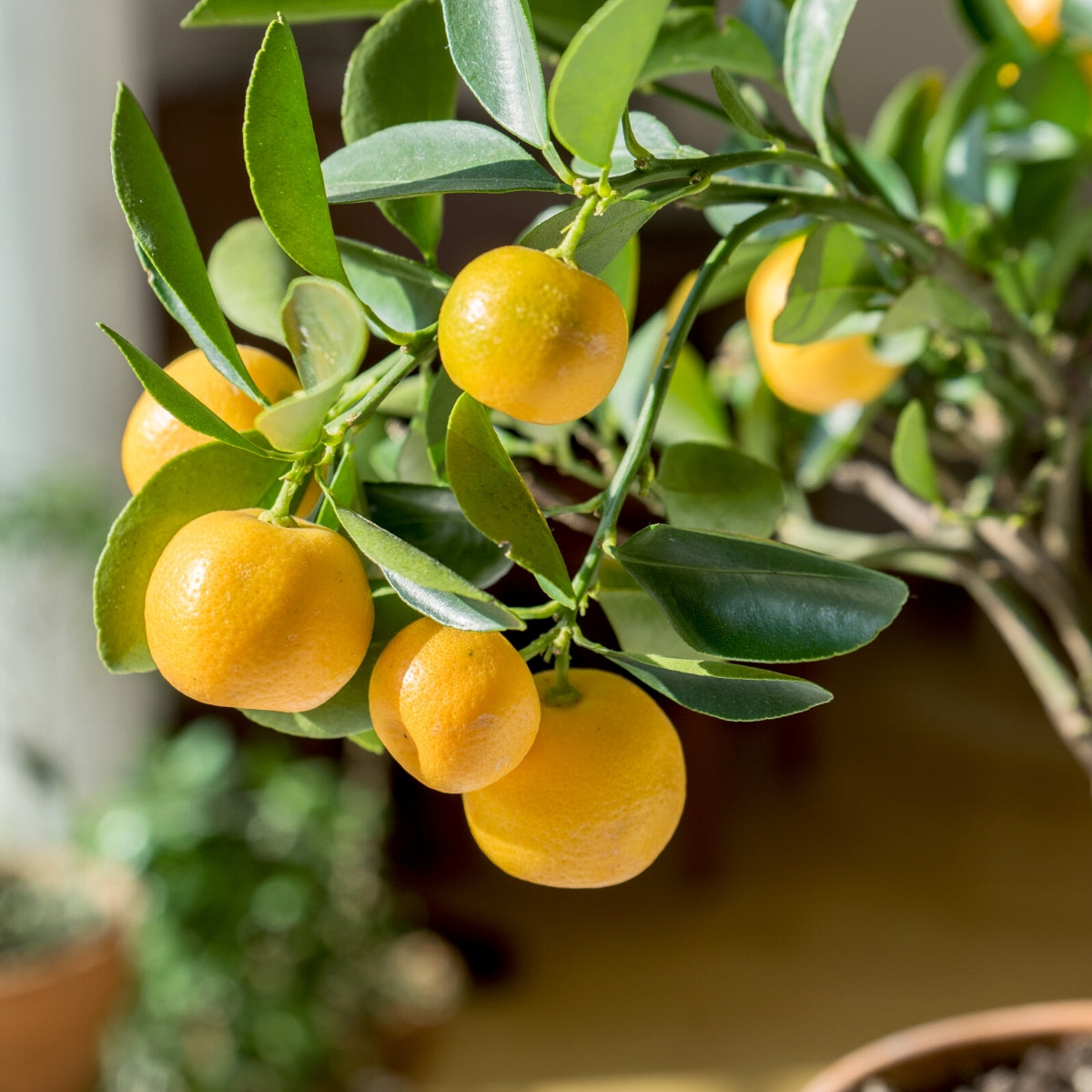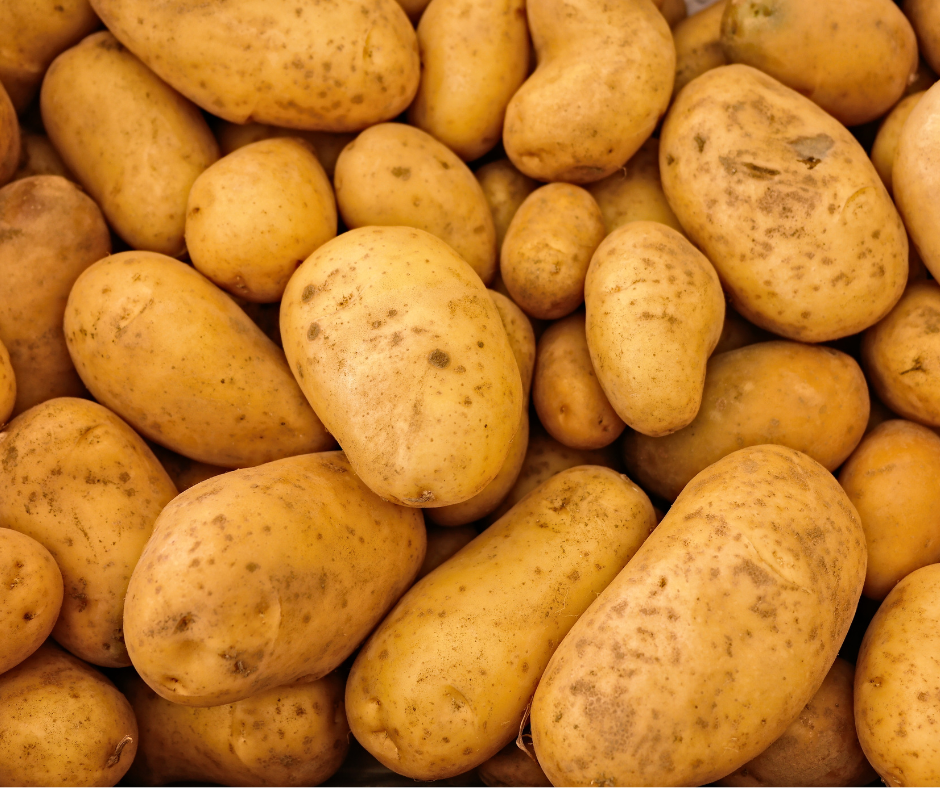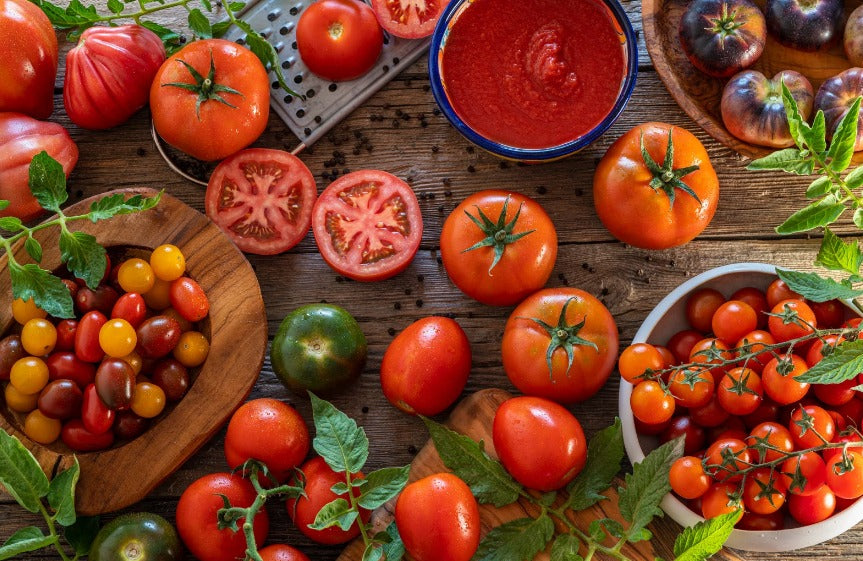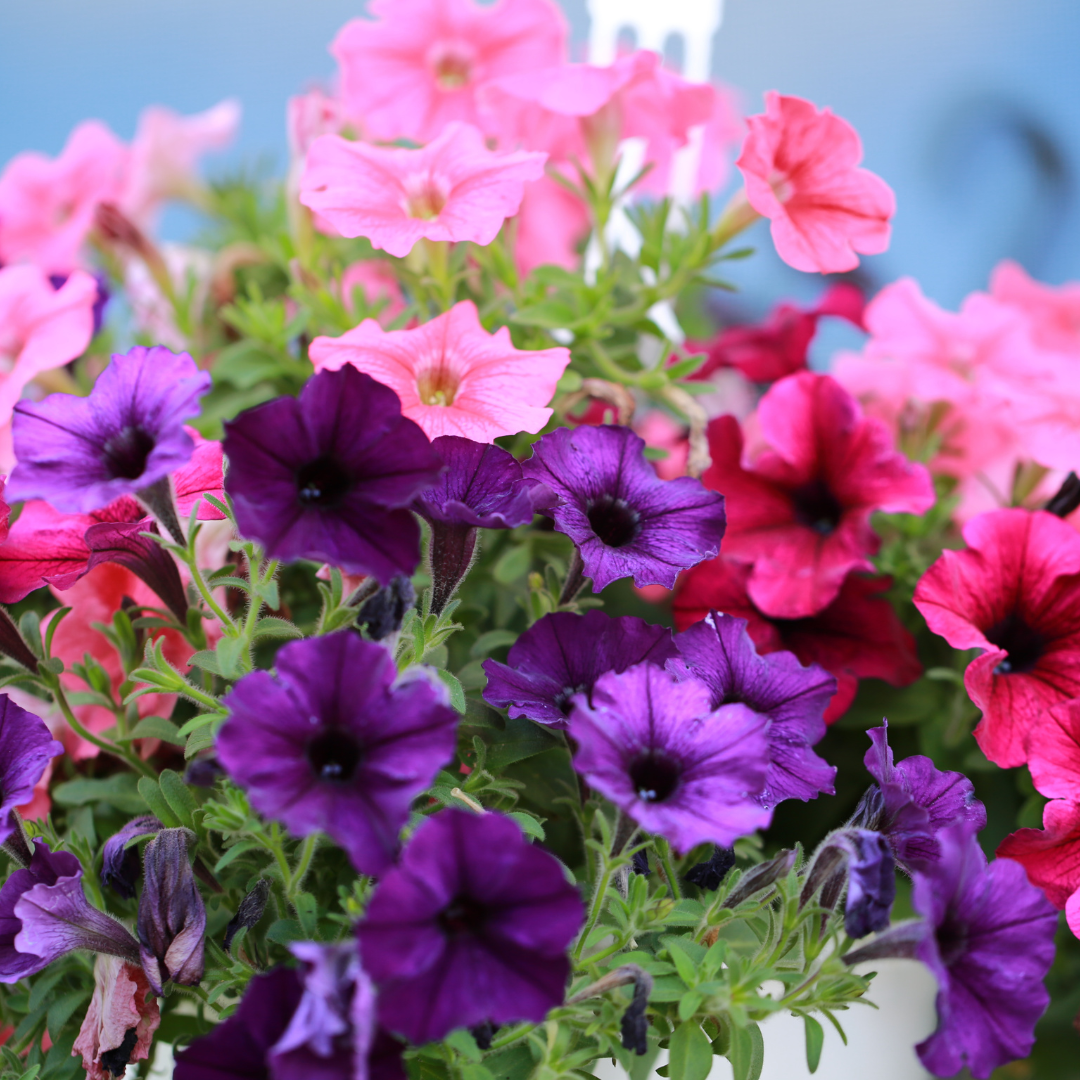Who doesn’t want to be able to pick a fresh lemon or juicy mandarin from their own backyard? Every home should have its own instant supply of Vitamin C! Palmers Fast Grow citrus trees are your guarantee of top quality trees that will fruit within two years. For favourite varieties on slower growing dwarf rootstocks see our range of ‘Flying Dragon’ citrus.
Planting
Citrus grow best in warm, sunny locations which are sheltered from strong winds. The primary need for citrus is well draining soil as they don’t like waterlogged soil. If your site is particularly damp, try digging through a quality compost or garden mix before planting to help break up heavy soils. For clay soil ensure you also mix in Gypsum ClayBreaker. If necessary you may need to plant the citrus on a raised mound to aid soil drainage. If your soil is not ideal we recommend lemon trees as they are hardier than most other citrus. The best time for planting citrus is in spring or early summer and again in autumn, catching that spurt of new growth at the first signs of warm weather and taking advantage of that nice warm soil. Avoid planting during the cold of winter as this is the slowest growth period and there is a high risk of your citrus getting too wet. Begin by watering the plant thoroughly while still in its container, and then allow the plant to drain. Dig a hole slightly larger than the container and deep enough that the citrus will sit at its present depth. If your tree is planted too low the trunk will stay wet which can cause bark diseases. Plant them too high and the rootball will dry out too quickly. If you are planting higher because of the soil type ensure you add plenty of garden mix around the plant so that it doesn’t dry out. Try not to disturb the rootball too much. Fill in the hole with a soil and compost, then water well.Feeding and watering
Citrus trees are gross feeders and require being fed regularly with a specific slow release citrus fertiliser. If using a powder fertiliser ensure this gets watered in well and citrus don’t mind a treat of liquid fertiliser on the odd occasion too. Do not fertilise too close to the trunk. Citrus have a shallow, fibrous rooting system; therefore additional watering might be required over the summer period. If rainfall is not adequate your trees should be watered deeply twice a week. Good mulch will help to conserve moisture and prevent weed growth around the plant.Pruning
Very little pruning is required in the first 2-3 few years, only prune to shape. After this period remove dead or broken branches or for dense growing varieties remove branches to allow sunlight and good air circulation to the middle of the tree. It is not recommended to remove large branches as this encourages lots of new growth which will then need to be removed again. Dense growing mandarins may need some thinning – usually straight after the fruit is picked.Harvesting
For the first two years after planting it is advisable to remove all fruit before it gets much bigger than pea sized. This helps the tree to become established and promotes a higher quality of fruit for future seasons. As citrus are heavy bearing it is advisable that one third of the fruit from each season are removed from the tree, this eliminates unnecessary stress and leads to improved quality of the remaining fruit. When picking your fruit it is advisable to use secateurs and leave a little stem on the fruit so that the fruit will keep longer. Remember to leave a clean cut otherwise diseases may enter through torn wood. Some varieties will bear heavily one year then less so the following year.Citrus problems
Citrus are relatively easy to grow and maintain once you have met their basic requirements. Citrus benefit from a regular spraying programme, which will prevent most insect and fungal problems from appearing. An alternative spray every 2 months is all you need. For example: in June spray with Nature’s Way Citrus, Vegie & Ornamental Insect Spray then in August with FreeFlo Copper, in October again with Nature’s Way Citrus, Vegie & Ornamental Insect Spray and so on.Problem: Waterlogged plants
Symptoms: Yellow leaves. Remedy: Dig out the tree, add compost, and garden mix to aid drainage, and replant higher. Alternatively look for a better draining site or plant in a large container.Problem: Requires fertilising
Symptoms: Yellow leaves with the veins remaining green. Remedy: Water thoroughly, feed with a speciality citrus fertiliser around the drip line, water thoroughly again. Citrus in a container, feed with a slow release citrus fertiliser.Problem: Aphids
Symptoms: Small black or green insects clustering and distorting new growth. Remedy: Spray with Nature’s Way Citrus, Vegie & Ornamental Insect SprayProblem: Mealy bug
Symptoms: White cotton wool-like insects that cluster on leaf axils and stems. Remedy: Spray with Nature’s Way Citrus, Vegie & Ornamental Insect SprayProblem: Scale
Symptoms: Brown insects with a glossy shell fastened along stems and leaves Remedy: Spray with Nature’s Way Citrus, Vegie & Ornamental Insect SprayProblem: Lemon tree borer
Symptoms: Holes and sponginess to the trunk and branches. Borer dust can be visible on the ground under trees in bad cases. Remedy: Spray with No Borer Injector spray. This is very difficult to control. Prune back to clean wood and burn infected parts. Do not prune between September and April when the borer is flying as a moth ready to lay eggs.Problem: Verrucosis
Symptoms: Brown scabs or blisters on the fruit. Remedy: Spray with Nature’s Way Citrus, Vegie & Ornamental Insect SprayProblem: Melanose
Symptoms: Red and brown spots on infected leaves and fruit. Remedy: Spray with Nature’s Way Citrus, Vegie & Ornamental Insect Spray This ‘How To’ Guide has been produced to provide basic information and our experienced staff are available to answer any questions that you may have. Because this guide is of a general nature, neither Palmers nor its staff are responsible for the application of the information, as the contents may need to be modified for individual projects and site applications.
This ‘How To’ Guide has been produced to provide basic information and our experienced staff are available to answer any questions that you may have. Because this guide is of a general nature, neither Palmers nor its staff are responsible for the application of the information, as the contents may need to be modified for individual projects and site applications.

















